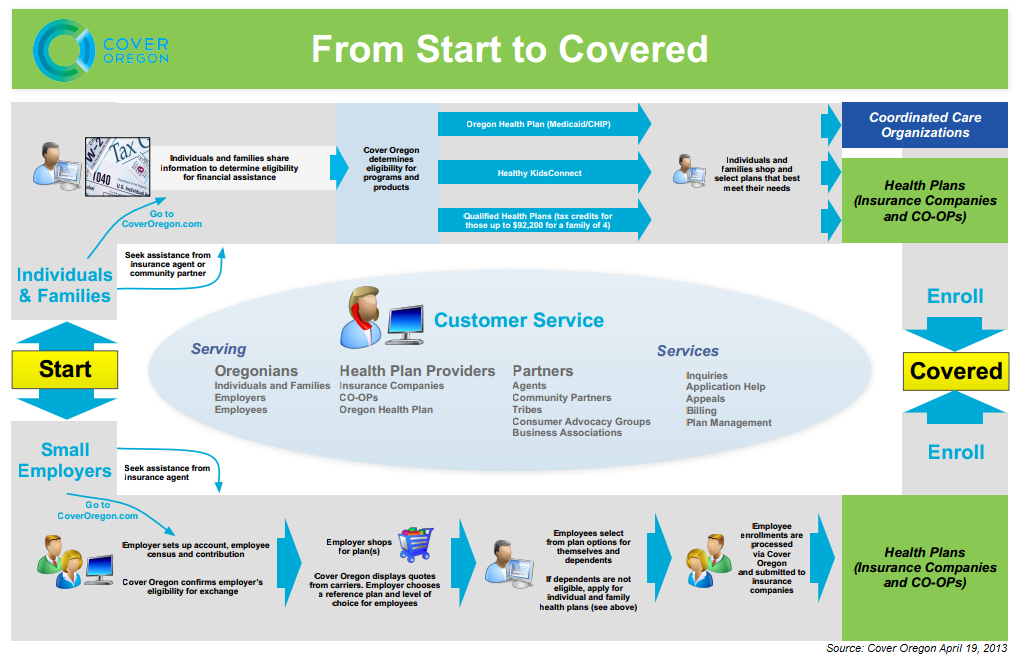
https://www.youtube.com/watch?v=Xv2UUcXCo9g
Taking Triple on Health Care with Josh Schultz

We’ve seen the clever Cover Oregon commercials and heard the back-and-forth about “Obamacare” also known as the Affordable Care Act (ACA). For those of us in the public sector, we may think that we won’t be impacted because of the quality health insurance offered by our city, county, or state. While this may or may not be true, it is true that everyone will be impacted in some way whether its the impact of the ACA on our organization’s budget or whether it is job market which will now need qualified professionals capable of understanding and carrying out the Act.
With so much uncertainty around the ACA, we have enlisted Josh Schultz to write about the ACA and its potential impact on you and also how it might impact your career. Josh is an Oregonian who relocated to New York City to work at the Medicare Rights Center. Josh is well versed on the ACA and welcomes feedback on his posts and recommendations for his future posts. Before we give Josh the pulpit, we provide you with what makes Josh qualified to write about this complex issue.
Affordable Care Act and the Oregon Health Policy Commission by Josh Schultz
In July 2007, the Oregon Health Policy Commission submitted a report to then-Governor Kulongoski. The topic was reforming health care financing and delivery in our state. Among the Health Policy Commission’s recommendations were:

- Marketplaces to purchase insurance: “A Health Insurance Exchange, an entity that can bring individuals, affordable coverage options, employers, and public subsidies together;”
- Subsidies to help individuals afford insurance: “Publicly-financed coverage and insurance subsidies to ensure affordable coverage for lower-income Oregonians;”
- Individual responsibility provision: “A requirement that every Oregonian obtain affordable health insurance;”
- Employer responsibility provision: “Sustainable system financing, including a broad-based employer contribution;”
- Expand public health insurance: “Expand publicly-financed coverage and insurance subsidies to ensure affordable coverage for lower-income Oregonians;”
- Medical records: “Develop widespread and sharable electronic health records”
Fast-forward to March 2010 in Washington, D.C. After a painful debate over reforming the nation’s health care system, delays from a key committee in the U.S. Senate, an electoral upset in Massachusetts frustrating one party’s ability to pass health reform legislation in that Senate, and two showdowns over whether health plans sold in the exchanges could cover abortions (they can), we got the Affordable Care Act (ACA), also known as Obamacare.

The Affordable Care Act creates these key things:
- Marketplaces to purchase insurance: It establishes health insurance exchanges (now known as marketplaces) in each state.
- Tax credits to afford insurance: Eligible individuals earning between 100 and 400% of the federal poverty level who aren’t eligible for Medicaid, will get a refundable tax credit to purchase coverage through the exchange. (Fun tool here: calculate your ACA tax credit!)
- Individual responsibility provision: Requires Americans who can afford it to enroll in minimum essential health coverage or pay a penalty (now understood to be a tax)
- Employer responsibility provision: Requires large employers to provide affordable health coverage to their employees or pay a tax. (This requirement was shrewdly delayed until after the 2014 mid-term elections.)
- Expands public health insurance: Expands Medicaid eligibility (now at the option of each state) to individuals earning up to 138% of the federal poverty line
- Medical records: Builds upon financial incentives and other programs, already enacted as part of the American Recovery and Reinvestment Act of 2009 (ARRA), encouraging health providers to use electronic medical records
That Oregonians came up with Obamacare, before Obamacare even existed, invites questions about Oregonians’ history of developing unique public health and health policy proposals. In my next entry, I will review Oregon’s record for taking triple aim on health care, from the Oregon Health Plan’s Prioritized List in the late 1980’s and early 1990’s, to our state’s gutsy move to implement the Coordinated Care Organizations (CCOs) in effect today.
Supplemental Reading
https://www.youtube.com/watch?v=s7hC1X1gUrU
- States experimenting to lower health care costs
- Confused over Oregon’s health insurance exchange? Sound-alike business is ready to help
- Oregon unveils new ads for health insurance marketplace; countdown to enrollment: Health news
- There’s a big learning curve with Affordable Care Act
- The Transition with Jennifer Lewis-Goff
